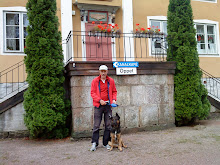Advanced Math, chess theory, philosophical essays are interesting to me to exercise my brain power. To understand the scope and the limits, the finite and the infinity, of Nature and various theoretical methods. The more knowledge the better.
Everyday business, chores as well, is not seldom a sort of "Lightning chess". Then the outcome, success or failure, depends mainly on what’s in the spine. No time for pondering and making a detailed analysis of anything at all. Just quick draws!
School kids, students, yes everybody, use a similar model of ‘Just quick draws’ to survive the all important next exam. Then after the exam they forget the whole previous mess to concentrate on the exam after that … It’s an important art to be able to drop things .. No one learns anything just for life .. The chase is on. Good marks, that’s what counts!
Guys have various arguments for their cognitive process, i.e. what, when and how to learn. The capability of the photo memory is very important for the selection of study method. It’s an elective principle. Compare the Essay called Morality and Art by Philippa Foot to which I refer to inform what an elective principle is supposed to be.
Some arguments students have during exam periods when they concentrate on essentials and refuse learning other things could be: There’s no time really just now for other matters! No use of learning other things just now, maybe later! The principle of necessity is applicable.
Most guys have good Rational thinking under very pressing conditions, the factor of time is always the limiting factor, that nearly bust them.
Knowing to use Power Point effectively is certainly more important.
When I visited Montreal in Canade I bought my first book of Samuel Beckett called MOLLOY, after that En attendant Godot, then COMMENT C’EST.
Montreal is the most interesting city I know.
3 år sedan
